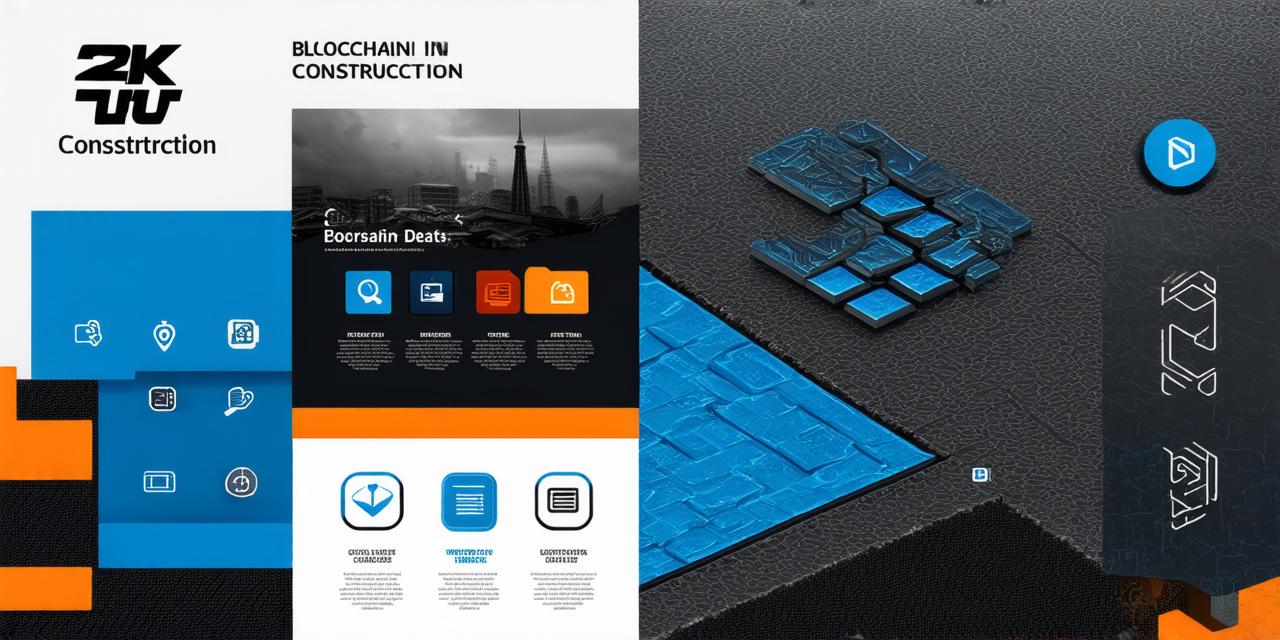Blockchain technology is rapidly transforming industries worldwide, and construction is no exception. As a blockchain developer, you may be wondering how this innovative technology can be applied to the construction industry. In this article, we will explore the benefits of blockchain in construction, including increased transparency, improved security, and streamlined processes.
Blockchain: An Overview
Before we dive into the application of blockchain in construction, let’s first understand what blockchain is. Blockchain is a decentralized digital ledger that records transactions across a network of computers. It allows for secure and transparent storage of data, without the need for intermediaries such as banks or government agencies.
The key features of blockchain include:
- Decentralization: Data is stored across a network of computers, rather than in a centralized database.
- Immutability: Once data is recorded on the blockchain, it cannot be changed or deleted.
- Security: Transactions are secure through cryptographic methods.
- Transparency: All transactions are visible to all participants on the network.
- Smart Contracts: Self-executing contracts with the terms of the agreement between buyer and seller being directly written into lines of code.
Benefits of Blockchain in Construction
Now that we have a basic understanding of blockchain, let’s explore how it can benefit the construction industry.
1. Improved Transparency
Blockchain technology provides a transparent way to record and verify all transactions related to a construction project. This includes everything from contracts and payments to building materials and inspections. By using a blockchain-based system, all parties involved in a construction project can access real-time information about the project’s status. This increased transparency helps to reduce fraud, improve communication, and ensure that everyone is on the same page.
2. Improved Security
Security is another key benefit of blockchain technology in construction. By using a decentralized digital ledger, all transactions related to a construction project can be securely stored and verified. This reduces the risk of fraud and ensures that sensitive data is protected from unauthorized access. Additionally, smart contracts can be used to automate many aspects of a construction project, reducing the need for intermediaries and increasing the security of financial transactions.
3. Streamlined Processes

Blockchain technology can also help to streamline processes in the construction industry. By using smart contracts, many aspects of a construction project can be automated, including payment processing, contract management, and inspections. This reduces the need for manual intervention and helps to speed up the overall process of completing a construction project. Additionally, blockchain-based systems can help to reduce paperwork and other administrative tasks, making it easier for all parties involved in a construction project to stay organized and on track.
Case Studies: Real-Life Examples of Blockchain in Construction
Now that we have discussed the benefits of blockchain technology in construction let’s take a look at some real-life examples of how it is being used in the industry.
1. Smart Contracts in Construction
A smart contract is a self-executing contract with the terms of the agreement between buyer and seller being directly written into lines of code. In the construction industry, smart contracts can be used to automate many aspects of a construction project, including payment processing, contract management, and inspections. For example, a smart contract can be used to automatically release payments to contractors once certain milestones are achieved or to automatically trigger an inspection once a certain amount of time has passed.
2. Blockchain-Based Supply Chain Management
Blockchain technology can also be used to improve supply chain management in the construction industry. By using a blockchain-based system, all parties involved in the supply chain can access real-time information about the status of materials and equipment. This helps to reduce delays and improve communication between suppliers, contractors, and other stakeholders. Additionally, blockchain technology can help to increase transparency and reduce fraud by providing an immutable record of all transactions related to the supply chain.
